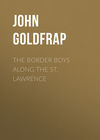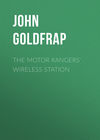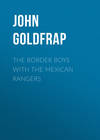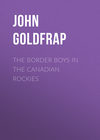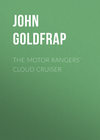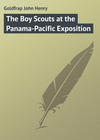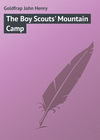Kitabı oku: «The Boy Scouts at the Canadian Border», sayfa 9
CHAPTER XVII
LYNX LAW
Donald had asked anxiously several times how the night was going. As a scout he might possibly have been able to tell this fairly well by the position of the heavenly bodies, particularly the planets; for every scout is supposed to include this woodsman’s trick in his education before he can call himself fit to wander at will in an unknown wilderness. But then Donald was hardly in a condition to depend on himself, and so he several times whispered to Rob:
“Is it gitting alang toward eleven, wud ye mind tellin’ me?”
It was still far from that, but evidently the particular hour Donald mentioned was wearing upon his mind, and he took counsel from his fears. Rob concluded that the long and heavily-laden munition freight was due at the bridge about eleven. And at the steady progress they were making he felt pretty certain they would be in ample time to give warning, unless something cropped up to detain them, which Rob fervently hoped would not be the case.
Tubby was still clinging to the rear, but doing nobly – for him. Even Andy felt a tinge of justifiable pride in the work of the stout chum, because he knew what a handicap Tubby always labored under when energy and sustained effort had to be looked to in order to pull one through. It meant a whole lot more for Tubby to accomplish this swift tramp than to any one of the other fellows, injured Donald alone excepted.
If he puffed and wheezed occasionally that was no more than might be expected. Every time Andy glanced over his shoulder on missing these familiar sounds, a faint fear oppressing him that the other had fallen out of line, he discovered the stout chum in motion not far back of his heels.
“Bully for Tubby; he’s all right!” Andy was saying to himself, for really he had a deep and abiding affection for the good-natured one, even though addicted to “rubbing it in” occasionally, when an evil spirit moved him to play practical jokes.
Then it happened!
Donald came to a sudden halt, and uttered a low but disgusted grunt.
“What’s the matter; lost the trail?” whispered Rob, for that was the first and most natural explanation that appealed to him.
“We’re in hard luck, I ken!” muttered the pilot of the expedition.
“In what way?” demanded Rob.
“It’s a muckle sair job, wi’ that awfu’ creature barrin’ the way. If ye look, Rab, ye can see his yellow eyes gleamin’ up yonder in the tree. The beastie is crouchin’ on a lower limb, and right o’er the trail. He will nae let us pass by, I fear me.”
All of them heard what Donald said, and every pair of eyes was immediately turned toward the place just ahead that he indicated. Sure enough something glowed in the semi-darkness, something that seemed like twin spots of phosphorus, about eight feet or so from the ground, and in conjunction with the lower limb of the big, bushy hemlock.
Even Tubby knew that only the orbs of the feline or cat species could display such glaring eyes in the night-time.
“Wow! a bobcat!” exclaimed Andy, fussing with his gun, though Rob instantly laid a detaining hand on his arm and hastily remarked:
“None of that sort of work, Andy, on your life, remember! It would ruin the whole business with us! It’s a dangerous job to try to shoot a cat when you can only see the glare of its eyes. Donald, what do you say?”
“First then, it is no common cat, but a big lynx, a fearsome creature for any man to tackle,” returned the young Canadian with complete assurance that told he knew what he was speaking about.
“Worse and worse!” grunted Andy, feeling a trifle disappointed because Rob had laid down the law, for he aspired to some day kill such a fighting monster as a full-grown Canada lynx, and it was too bad that circumstances over which he had no control were now fated to keep him from carrying out that somewhat ambitious desire.
Rob had been fumbling about his person, and suddenly there shot out a small but intense ray of light. The scout master had thought to fetch along with him that exceedingly useful little hand electric torch, and was now putting the same to good service.
Tubby stood on his tiptoes in order to see better, for he chanced to be just behind Andy, who somehow did not think to step aside. What he beheld gave him a further quiver along the region of his spine, as Tubby afterward admitted “just as if some malicious joker had suddenly emptied a bucketful of icy water down his back.”
There was no mistake about it. Crouching upon the limb of the hemlock they could see the beast, much larger than any wildcat they had ever met in all their travels, and plainly marked with odd-looking tasselated ears, and the hairy growth so like whiskers, that distinguish the true Canadian lynx.
The cat did not like that piercing glow from Rob’s dazzling light as was evidenced by a low fierce growling sound. Tubby had often heard the pet tomcat at home make that same noise when holding a captured sparrow between his teeth, and threatened by a rival and envious feline desirous of taking the prize away from the possessor.
At the same time the lynx showed no disposition to retreat, while they would not dare venture along the trail, because in so doing they must pass directly under its “roost,” as Andy called it.
Besides, Rob was not without caution, though on occasion he could be just as dashing as the next one. There was always a time when discretion might be deemed the better part of valor; and such an occasion now confronted them, Rob thought.
Donald, poor fellow, was figuratively speaking on “needles and pins,” what with his impatience to get on, and his knowledge of the dauntless habits of the animal that now disputed their right to that trail.
“There’s only one thing we can do,” said Rob decisively, for he was a great believer in “taking the bull by the horns,” or cutting the Gordian knot when it could not be untied, just as Alexander the Great is said to have done on occasion. “We must turn aside, and go around the brute. Let him stay in the tree where he is, if that’s his game. All we want is to get along, and lose no more time than is necessary.”
Andy was heard to give a sigh. How he did hate to “knuckle down” to a miserable old lynx that considered them trespassers on his domain, and perhaps knew they were just invading Yankee boys who had crossed the line despite the law that forbade trespass on the part of foreigners.
“A gude idea, Rab!” exclaimed Donald, overjoyed. “Mair strength to yer elbow, man. And let us gang awa’ without anny more bother.”
“Oh, well, all right,” grumbled Andy, in a disgusted tone. “It’s hard lines, let me tell you.”
Tubby was not saying anything, but he did a heap of staring. He noticed that as they left the trail and began to make a half circle so as to pass around the big hemlock containing that audacious lynx, Rob continued to play his electric torch so that its glow fell upon the crouching beast. There was a double object in this, for not only could they keep watch over the animal, and feel assured it had not left that limb to follow them; but at the same time the lynx would have to remain under the mystic spell of the glowing orb that dazzled it.
Andy kept his gun in readiness, for he was determined that should the beast make any attempt at attacking them he could not be bound by any order which would prevent him from shooting. But there was no occasion for violence. The lynx twisted its head around so as to follow their passage, but when last seen it had not even changed its position on the limb. As Tubby told himself half humorously it “just seemed bent on seeing a disreputable rabble well off the premises,” when it could once more take up the necessary duty of securing a dinner.
Tubby was also concerned in casting his eyes about him in momentary expectation of discovering another pair of glowing eyes amidst the tangle of branches above; for he remembered that most cats hunt in couples, often surrounding their game. He was looking for the mate of the lynx in the hemlock, looking, but at the same time fervently praying that it would only be conspicuous by reason of its absence, for Tubby was not at all fond of any sort of cats, domestic or wild.
All of them breathed sighs of satisfaction when they could no longer see any sign of the ferocious four-footed hunter of the trail. Rob had now extinguished his light, for he did not wish to needlessly exhaust the little battery; it had already proven worth its price, and was likely to come in handy on still further occasions in the near future.
“Not much danger of his following after us, I suppose, Donald?” Rob asked softly. He felt that the Canadian boy must be much better acquainted with the characteristics of such a native animal than he could boast of being.
“Na, I dinna think so. The beastie is satisfied to see us go around and leave him in possession. He is nae lookin’ after the likes o’ us just noo. But I hae another trouble facin’ me.”
“You mean finding the trail again, don’t you, Donald?” asked Rob.
“Just so,” came the reply. “I know the general direction we must be goin’ till we reach the railway, but it wud be so much better if we were able to continue alang the path.”
“We turned off to the right,” said the observing scout master, “and so it is bound to lie over on our left. You could tell when you struck it, I suppose, Donald?”
“Oh! ay, if on’y I could see,” the pilot assured him.
“Well, we’ll soon fix that part of it easy enough,” remarked Rob, and once more he had recourse to his invaluable vest pocket edition of a hand torch.
He and Donald walked side by side, using their eyes to the best advantage as they slowly advanced. Rob, being a clever woodsman, could pick out a trail that had been frequently used by passing human beings and animals, even though he may never have previously set eyes on the spot himself. As for Donald, surely he ought to be able to equal the cousin scout from over the border, for he was quite at home in these Canadian woods.
Andy, not being able to assist, was well contented to follow after those in the lead, and let them shoulder all the responsibility. Andy had a little weakness in this direction, which sometimes cropped up; and many boys are apt to think it a good thing when they can get some one else to assume all the care, while on their part they go “scot free.”
Tubby was beginning to worry. He fancied they might have “rough sledding” ahead of them. Why, this even began to look a little as though they were getting lost; at any rate, the trail was lost, which amounted to nearly the same thing. So Tubby was feeling that queer sensation again in the region of his heart, which had begun to pump doubly fast. Tubby’s naturally timorous nature had never been fully conquered, and there were plenty of occasions when it gave him much trouble. He feared lest he might be disgraced in the eyes of his chums by appearing a coward, something he sincerely detested.
Several precious minutes passed. In vain did Tubby listen to hear either of the trail hunters declare that their efforts had met with success.
“Yes, I guess after all we must be lost!” the stout scout began to admit to himself forlornly; and, indeed, it looked rather serious.
CHAPTER XVIII
THE TRAIL TO THE TRESTLE
“It’s certainly queer where that trail can be,” Rob himself was saying. On hearing this Tubby’s heart took on an additional flutter, for he seemed to think things must be pretty serious when experienced Rob, who seldom allowed himself to show the least sign of discouragement, should speak in this strain.
“We hae already come twicet as far as I thought wud be necessary,” admitted Donald, “and naething yet o’ the pesky thing.”
“I’m dead sure we haven’t passed over it,” added the scout master. “While one pair of eyes might have failed two could hardly have been deceived. There’s only one explanation that I can think of.”
“Oh! what’s that, Rob?” hastily asked Tubby, making a great effort to keep that miserable tremor from affecting his voice, though he felt that he just had to say something.
“The trail must have taken a sudden bend just about that big hemlock,” Rob explained. “You’ve been over it so many times, Donald, I should think you might remember whether it does.”
“It’s verra curious,” spoke up Donald reflectively, “but I gie ye my word I was thinkin’ the same thing this minute. I am beginning to believe that it does the thing, ye ken. If that be so, then a’ we hae to do is to keep on goin’ till we fetch up once mair on the trail.”
“Well, let’s make an agreement,” said Rob. “We’ll keep along for five minutes, and if nothing shows up it would be better for us to abandon all hope of running across the path. Then we will have to shape our course as best we may, with both you and Zeb here to figure things out. There’s no doubt about our hitting the railway embankment somehow.”
“It is unco’ kind o’ ye to say that, Rab!” declared the Canadian lad, who blessed the lucky chance that had raised up such devoted and loyal friends as these cousins from over the border, when he was more in need of help than ever before in all his young life.
“Why not call on Zeb here to give his opinion, Rob?” mentioned Andy, having a sudden bright thought. It occurred to him that a veteran woodsman’s advice ought to be particularly valuable under such conditions as now confronted them.
“How foolish o’ us not to hae thought o’ that before,” said Donald contritely.
“Better late than never,” muttered Andy.
Rob, turning upon the big guide, hastened to say: “Zeb, you understand how it is, and why we haven’t bothered mentioning this before. Donald was supposed to know more about this region than any one else; but now he is up a stump, and perhaps you could help us out. So please tell us, if you know about this part of the country, and particularly this trail we’ve been following.”
“Wall, I sartin do have reason for rememberin’ that same big hemlock the cat was squattin’ in,” he said. Apparently the rough Maine woods guide was not cherishing any resentment because he had not been considered in the matter.
“It was under that tree Mr. Hopkins he shot the best moose bull he ever got. That was three winters ago. We was follerin’ this path, when he broke cover and went down all in a heap at the fust shot. Say, but Mr. Hopkins he was some proud o’ that shot, fur it took right behind the shoulder, and tumbled the big bull over inside o’ twenty yards.”
“Try and remember, Zeb, about the trail; forget all those other things. Did it make a twist and a turn somewhere about that hemlock?” asked Rob.
“It sartinly did, sir,” the guide assured him. “I remember it because we had occasion to look fur water, an’ hearin’ a stream nigh by I went on to scout for it. Yes, the path made a quick bend at the hemlock. It took up the old direction arter a bit.”
“That settles it,” remarked Rob, fully satisfied. “We go on further, and I expect we’ll soon run across our trail.”
“Good enough,” grunted Andy. “Nothing like corroborative evidence. Donald thought he was right, and now we know he was, as sure as shooting.”
“That’ll do, Andy,” cautioned Rob, who feared they were all doing more talking than discretion allowed. Who could say what hostile ears might not be within hearing distance, hidden by that semi-darkness surrounding them on every side?
They started on. Hardly had two minutes passed, fraught with untold anxiety to at least one of the party, Tubby, when Donald was heard to give a low exclamation. This time there was a note of joy and not dismay permeating the cry.
“Have you struck it, Donald?” whispered Andy, close behind the others.
“Faith, an’ I hae done that, laddie,” bubbled the Scotch-Canadian boy, so filled with delight that he could hardly refrain from shaking hands with each of his companions.
Rob saw that it was even so, for his quick and practiced eye told him the trail lay before them, as seen in the glow of the hand torch.
“We’ll have to douse the glim from now on,” he announced. “Much as I’d prefer to keep up its use, for we could go faster, it might be seen by someone, and bring us more trouble than we’d care to face.”
He shut off the light. It looked doubly gloomy to Tubby, once they had to depend wholly on the dim glow of the stars above, for bright as these heavenly bodies may appear, they afford but a poor substitute for a torch, backed by a little electric battery with its illumination focussed at one point.
“I hope we don’t lose it again,” ventured Tubby, who had sighed with relief at the luck that came their way. He had come very near saying, “I hope we don’t get lost again,” but caught himself in the nick of time.
“There is verra little danger o’ that, I assure ye,” Donald told him, as once more he started bravely forth.
Thus far Donald had managed to keep going, though Rob could not help noticing that the effort was beginning to tell upon him seriously. That limp of his cropped up more frequently than at first; indeed, if the boy took his mind off the subject for a brief space of time he was sure to fall into stumbling along. Rob hoped he would be able to hold out to the end. At the same time he had made up his mind he and Andy, and Zeb, perhaps, would finish the mission of warning the guards, even though it became necessary to leave Donald behind, with Tubby to keep him company. He had never undertaken a task that appealed more to him than this stand for neutrality. There was something strangely fascinating about it, something uplifting, that appealed to Rob strongly. He felt that he was doing his full duty as a patriotic citizen of the great United States, in thus attempting to foil the miserable and pernicious schemes of those plotters who, if only they could accomplish their plan for injuring the Allies, did not care how much they embroiled Uncle Sam with his northern neighbor and the world at war.
“I saw something then that looked a whole lot like the flash of a match,” suddenly muttered the quick-seeing Andy.
“It was a match,” admitted Rob. “I saw it, too. From the fact that it seemed to be higher up than we are I take it the man who struck it must have been a guard on the railway embankment, in which case it is only a short distance from us now.”
“But why would he want to strike a match, please?” asked Tubby, pushing his head close up to the others in his burning desire to learn facts and theories.
“Oh, perhaps just to light his pipe,” returned Rob, whispering, of course. “Fact is that must have been just what he was doing. I saw the light flare up several times, and that would mean so many puffs. These Canadians, like the British, are great hands for a pipe, you know.”
“Let us be awa’ then,” urged Donald feverishly. “Tell me, please, Rab, is it yet near the hour o’ eleven?”
He could hardly have exhibited more eagerness had he heard the far distant rumble that would announce the coming of his father’s train. Ere this the poor boy was in a real fever, brought on by his emotions, as well as the nature of his recent severe exposure and physical suffering.
Rob understood all this and could sympathize with Donald. At the same time he also knew they were now about to approach the real danger that overhung the adventure. Undoubtedly those desperate men must be near by at work, intent on carrying out their monstrous scheme that would entail so much loss of property and life. So, in trying to communicate with the guards of the trestle and the adjacent bridge, they would have to run the gantlet of discovery at the hands of the dynamiters.
“Plenty of time yet, Donald,” Rob said in the ear of the eager one. “Many a fine plan has been spoiled by too great haste. We’ll carry it through to a successful finish. This won’t be the first time the scouts of the Eagle Patrol have been put on their mettle. Donald, they have always won out. Wait and see.”
“Rob,” ventured Andy, in his most muffled tones, “I just know you’ve got a bully good plan up your sleeve right now. Tell us what it is, won’t you?”
“Get your heads close together, then,” cautioned the scout master.
When they had done this he went on:
“Donald, you ought to know all about this trestle here, since you’ve been around it many a time. Am I right?”
“I thought I had tawld ye I did before, Rab.”
“All right. Then try to decide, if you can, just where these men would be most apt to lay their mine. You can figure that out, can’t you, Donald?”
The other stopped to think it over carefully, for he was beginning to grasp the tremendous idea that had taken hold upon the intrepid scout master.
“Ay, there is one place above a’ ithers they wud select. I gie ye my word on it, Rab. The mair I think o’ it the stronger that appeals to me. An’ if the mine were exploded underneath the trestle it wud do jist as much damage as though the bridge itsel’ were toppled down. An’ the train, – my soul, what an awfu’ fall there would be!”
Small wonder if the boy shivered as he said this. It must be remembered his one thought lay in the fact that the engineer whose hand would be on the throttle of that ill-fated locomotive was his own dearly beloved father.
“All right, then, Donald, we want you to lead us as straight to that particular spot as you can in this darkness. When we strike the trestle we will all start to getting down on our hands and knees, and feeling for something in the way of a trailing copper insulated wire.”
Andy gave a little snort of delight as he grasped the idea.
“Fine, Rob!” he whispered. “You mean to cut the connections, don’t you? When they press down the button of their old battery, expecting to fire the hidden mine, why, nothing will follow! It’s a sure enough bully scheme.”
Tubby felt like hugging himself, or Rob, or some one, he hardly cared who, for just as always happened, Rob was proving himself to be master of circumstances. Oh! he had seen Rob carry out so many schemes built on this order that Tubby knew success was bound to come to them again.
“Come awa’ then,” urged Donald, and Rob only added:
“No whispering after this, unless you put your lips directly up to my ear.”
So they crept cautiously forward, and inside of three minutes Tubby began to see the trestle work looming up between himself and the sky. They had apparently reached the crisis in their fateful affair.

